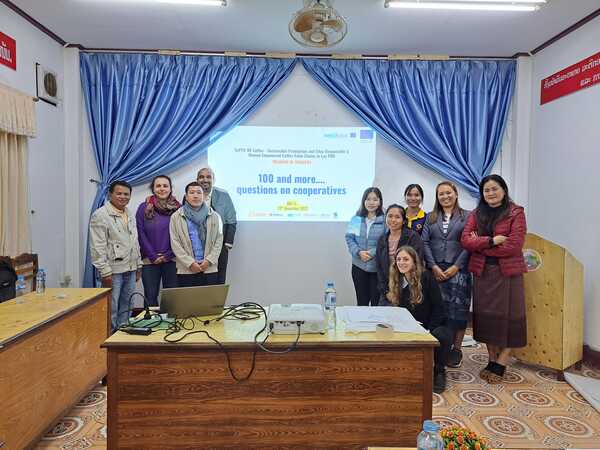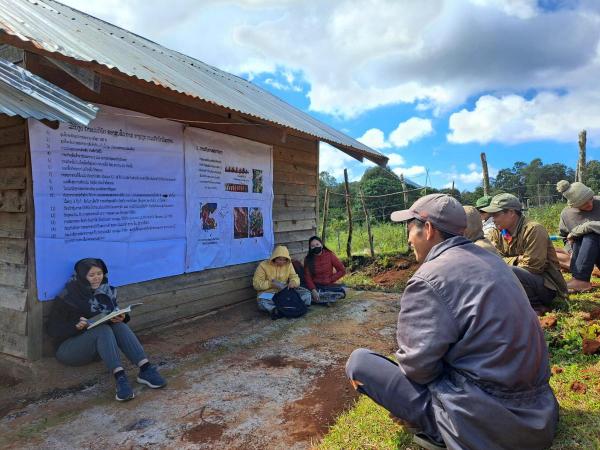
ICA-AP has collaborated with Haliéus, CARE France, CARE International in Lao PDR, 4Form, Sekong Provincial and Forestry Office (SPFO) and the Sekong Provincial Chamber of Commerce and Industry (SPCCI) to form a consortium that is implementing the 4-year long project titled ‘Sustainable Production and Ethic Responsible & Women Empowered Coffee Value Chains’ (SuPER WE Coffee Project) in Laos PDR. It is supported by a grant from the European Commission and commenced in February 2022. More details about the project are available here.
As part of the project, the ICA-AP along with other consortium partners and the ILO organised a Training of Trainers (ToT) from 21 to 28 November 2023.
The ToT aimed at equipping four facilitators with the necessary skills, curriculum, and material for training and empowering coffee farmers to adopt cooperative principles within the Dak Cheung district. These trained facilitators equipped with the training material translated to Laotian, in their pivotal role, will be able to organise, disseminate key information and support farmers in the coming months to adopt these cooperative principles into praxis. ICA-AP engaged Dr. Sagar Wadkar, a technical expert on cooperatives and agri-extension to conceptualise and plan capacity-building and training activities related to strengthening women-empowered coffee value chains.

The ToT efforts directly target around 400 coffee farmers in 15 villages of Dak Cheung district where nearly 12,000 people (approximately half the population of the district), are dependent on coffee production. The outcomes of the training aim to increase their income opportunities, reduce the risks connected to unsustainable agricultural and manufacturing practices, and increase their resilience to climate change.
Expectations and Training Objectives: The training aimed to equip facilitators to support local producers in developing sustainable businesses, considering the four pillars of sustainability - human, social, economic, and environmental. Facilitators were expected to transmit cooperative values, support the creation of new businesses, and promote shared and community actions for local development through coffee production and transformation.

ToT programme outlay: The 6-day course covered diverse themes, including an introduction to the SuPER WE Coffee project, cooperative identity, history, and regulation, cooperative attitudes, relationships and organisational models, cooperative business models, and gender equality and leadership. Therefore, a tailored curriculum on cooperative principles, aiming to empower coffee producers in Dak Cheung was prepared for the ToT of facilitators. Practical workshops and a field visit were included to enhance the training's practical application.
Dr. Wadkar conducted 6 sessions on Cooperative Identity, Cooperative, Cooperative Membership, Cooperative Structure and Decision-making, Professionalism, and Fostering Gender-responsive Leadership. He encapsulated diverse models and examples of thriving agricultural cooperatives such as Araku Coffee in Andhra Pradesh, the AMUL dairy cooperative model, & the Bolaven Plateau Coffee Producers’ Cooperative etc. Group exercises were organised to experientially imbibe the cooperative business model into the training exercise with coffee farmers.



